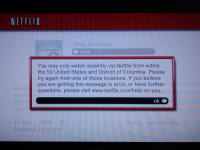From the moment that the Liberal government renamed Industry Canada as Innovation, Science, and Economic Development it sent a clear signal that innovation is a top policy priority. Indeed, in recent months Minister Navdeep Bains has repeatedly called for bold policies focused on addressing Canada’s dismal innovation record.
My weekly technology law column (Toronto Star version, homepage version) notes that while the specifics of the Canadian innovation policy have yet to be revealed, a recent Australian government backed study provides a potential roadmap. The Australian Productivity Commission, which functions as an independent “think tank” for the government, released a 600 page draft report in April that proposes a myriad of changes to its intellectual property system.
The government asked the Commission to report back on whether the current legal frameworks “ensure that the intellectual property system provides appropriate incentives for innovation, investment and the production of creative works while ensuring it does not unreasonably impede further innovation, competition, investment and access to goods and services.” The result is a comprehensive report based on hundreds of submissions and consultations representing a broad range of views.








